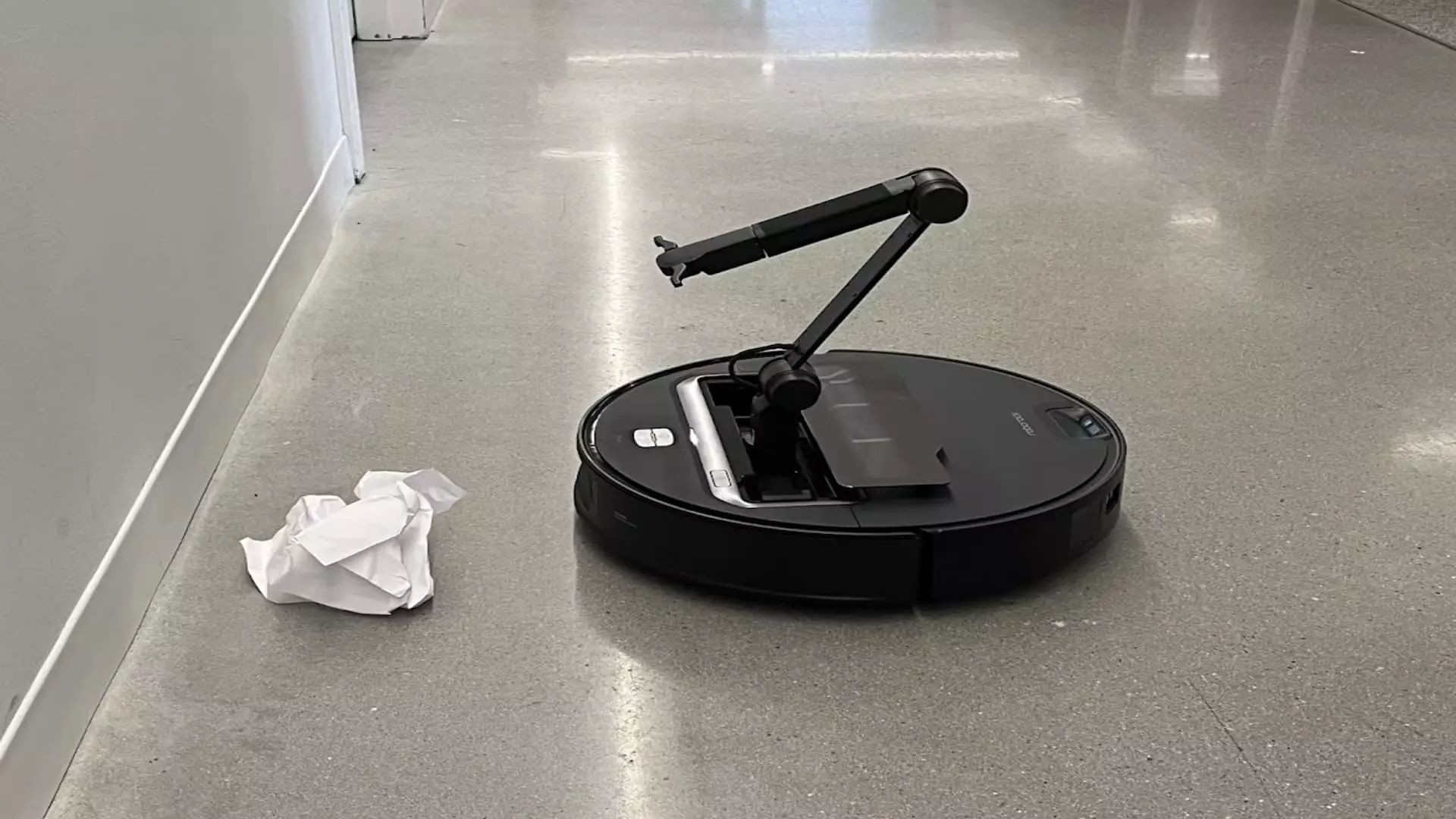In the rapidly advancing world of home automation, the line between convenience and necessity continues to blur. A prime example of this trend is the introduction of the latest robot vacuum cleaner from Roborock, a prominent Chinese company known for its innovative household solutions. The new model, the Saros Z70, incorporates a groundbreaking feature—a folding arm designed to autonomously remove obstacles such as socks and other small items strewn across the floor. This development signals a critical leap forward in the evolution of smart home technology, raising expectations about the role of artificial intelligence (AI) in our daily chores.
Roborock’s President, Quan Gang, expressed an ambitious vision regarding the role of robot vacuum cleaners in the coming years. He predicts that within a mere three years, these devices could become as indispensable as washing machines. This outlook is grounded in the company’s commitment to integrating AI into household technologies. The Saros Z70 leverages proprietary AI technology to identify and remove everyday obstacles weighing less than 300 grams—essentially creating a more efficient cleaning experience that might one day eliminate the need for manual intervention altogether.
What sets the Saros Z70 apart from its competitors is not just its obstacle-removal capability but also the broader implications of incorporating AI into home cleaning devices. The appliance not only vacuums but actively learns from its environment, positioning itself as an autonomous assistant that adapts to the user’s lifestyle. This ease of operation may well lead to increased adoption rates among consumers who prioritize time savings and convenience in their lives.
Despite advancements, the penetration of robot vacuums in markets worldwide remains surprisingly low. According to Quan, the device’s adoption rates hover just above 10% in developed countries and linger in single digits in developing nations. This discrepancy highlights both a challenge and an incredible opportunity for Roborock and other manufacturers in the industry. As AI technology grows more sophisticated, its integration into robot vacuums can act as a catalyst for this market, enticing more consumers to invest in home automation.
The competitive landscape for robot vacuums is becoming increasingly crowded, with various options available to consumers. Industry publications such as The Verge and Wired have touted Roborock’s various models as some of the best on the market, emphasizing their state-of-the-art features and capabilities. However, the investment required for such devices is not trivial—top models like Roborock’s S8 MaxV Ultra retail for a hefty $1,799.99, a price that may deter budget-conscious buyers.
Roborock’s recent announcements come at an opportune time as the Consumer Electronics Show (CES) showcases the latest innovations from tech companies worldwide. Following the launch of the Saros Z70 and updates to its washing machines, which now include drying functions, market analysts noted a positive response. Shares of Roborock experienced a 2.6% increase after the robot vacuum’s reveal, emphasizing investor confidence in continued growth—a sentiment bolstered by a significant 23.2% increase in revenue for the first three quarters of 2024.
Quan has reinforced Roborock’s ongoing commitment to research and development (R&D), noting that a dedicated team of around 30 researchers in Shanghai and Shenzhen is working to push the company forward. Increased investment in R&D—rising to 9.1% of operating revenue—demonstrates Roborock’s resolve to enhance its technological capabilities and capitalize on AI advancements.
Despite the promising events on the horizon, Roborock does face significant hurdles, particularly in recruiting highly skilled researchers to lead innovation efforts. As the demand for AI expertise outpaces supply, finding qualified talent has become a pressing concern. Looking ahead, Quan aims to scale the team to 300 professionals, recognizing that talent is a critical component of competitive advantage in this rapidly evolving industry.
With formidable rivals such as iRobot and other domestic contenders, sustaining growth in market share will require not just innovation but strategic position and marketing initiatives. As Roborock continues to develop its product line and adapt to consumer preferences, its success will hinge on balancing cutting-edge technologies with affordability and user-friendly design.
The unveiling of Roborock’s Saros Z70 embodies the significant advancements in household technology driven by artificial intelligence. As the company sets its sights on becoming a household staple akin to washing machines, its innovations not only enhance cleaning efficiency but also redefine our relationship with home appliances. The journey toward a more automated future is fraught with challenges yet filled with immense potential—a potential that both Roborock and the global market for robot vacuums are eagerly poised to explore.


Leave a Reply